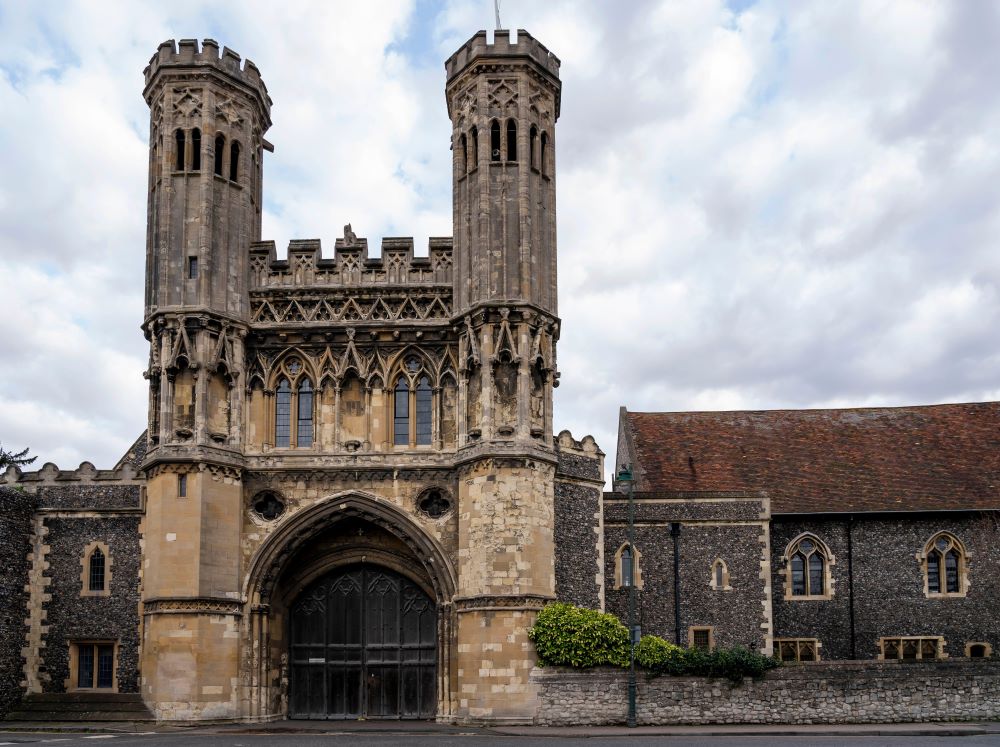Universities Are Making Cuts To Pay For Rising Staff Pensions, Accounts Show
University graduates line up for degree in university graduation ceremony
4 min read
Many universities are struggling with the cost of staff pensions at a time when the higher education sector is already under financial pressure, PoliticsHome analysis of their accounts suggests.
In newly published accounts for 2023-24, universities have warned that the rise in employer contributions to the teachers' pension scheme (TPS) — which many institutions are required to offer — is resulting in unsustainable increases.
This, in turn, is compounding other financial pressures like falling international student numbers and the recent rise in employer National Insurance contributions, they say.
While the pensions dispute over a different scheme, the Universities Superannuation Scheme (USS), was resolved in summer 2023, many institutions still feel the impacts of the TPS on their employment costs.
According to the accounts published by the University of Central Lancashire (UCL), the cost of the contributions to the TPS has caused “an additional financial challenge”.
“The five-percentage point increase in the employer contribution to over 28 per cent was unknown at the start of the financial and academic year and created a considerably increased financial burden,” UCL says.
According to the Higher Education Policy Institute (HEPI), the TPS is the main pension scheme for at least 80 universities. They are all former polytechnics, which gained university status through the 1992 Higher Education Act.
Contributions to the TPS rose from 23.68 per cent to 28.68 per cent in April 2024. While the costs of the increase for schools and colleges are covered by the government, universities must fund the costs themselves.
The sector has warned that the impact of the increase will be “far greater” in 2024-25 as the change took effect late last year.
USS employer contributions, on the other hand, have reduced to 14.5 per cent.
Some institutions are employing staff via subsidiary companies to give themselves the freedom to offer other pension schemes, according to higher education sources.
In its accounts, Canterbury Christ Church University said the costs of the TPS are a “new challenge” for the institution.
The university said that the rise in employer contributions from April had led to a rise of “approximately 20 per cent in the actual cost of providing the pension for academic staff”.
 Canterbury Christ Church University's said growing pension contributions had led a rise of “approximately 20 per cent in the actual cost of providing the pension for academic staff”.
Canterbury Christ Church University's said growing pension contributions had led a rise of “approximately 20 per cent in the actual cost of providing the pension for academic staff”.
For Oxford Brookes University, the increase in TPS contributions led to a rise of £1.2m in staff costs for 2023-24, according to its accounts, with the total annual cost of paying pensions described as a “challenge”.
St Mary’s University in Twickenham said that the full impact of the contribution increase is yet to come.
“Significant increases in the contributions universities have been required to make to the Teachers' Pension Scheme have impacted staff costs in 2023-24, and the impact will be far greater in 2024-25 because the change only took effect in April.”
Its accounts added: “The sector has been required to absorb unsustainable increases in pension contributions and, going forward, a substantial hike in employers' National lnsurance contributions.”
At Teesside University, an increase in the TPS contribution rate contributed towards an increase of £10.4m in expenditure for the university in 2023-24.
The University of Brighton in its accounts said the cost of contributing to staff pensions had forced it to "find additional savings in academic school budgets in-year".
Vivienne Stern, Chief Executive Officer of Universities UK urged the government to give universities the flexibility to offer alternative pension schemes.
"For half the sector, [it] is a result of an accident of their history, because they were previously under local government control, [that] they're obliged to offer one of the most expensive pension schemes in the country," she told PoliticsHome.
Stern said it creates an "unlevel playing field at a time when no institution can afford to be putting that much into pensions".
Raj Jethwa, Chief Executive of the Universities & Colleges Employers Association (UCEA) said: “Our sector is grappling with unprecedented financial pressures, exacerbated for post-92 institutions by statutory obligations to provide the TPS where they have had to absorb substantial increases in their TPS costs over the last two valuation cycles."
Jethwa said that the rate had increased by 12 per cent over the past five years and that many institutions had cited compulsory participation in the TPS as a reason for having to carry out redundancy exercises.
"Higher education institutions need options to offer alternative pension schemes to alleviate the financial strains on employers and employees and to prioritise HE core missions,” he said.
Professor David Green, Vice Chancellor and Chief Executive of the University of Worcester, and Chair of UCEA’s Local Government and TPS Group and UCEA Board member said pension contributions amount to ten per cent of his university's total expenditure and £1 in every £6 spent on pay.
A Department for Education spokesperson told PoliticsHome: “We recognise the impact of the increased TPS employer contribution rate on some providers and are working with the sector to better understand the impact of this issue.”
